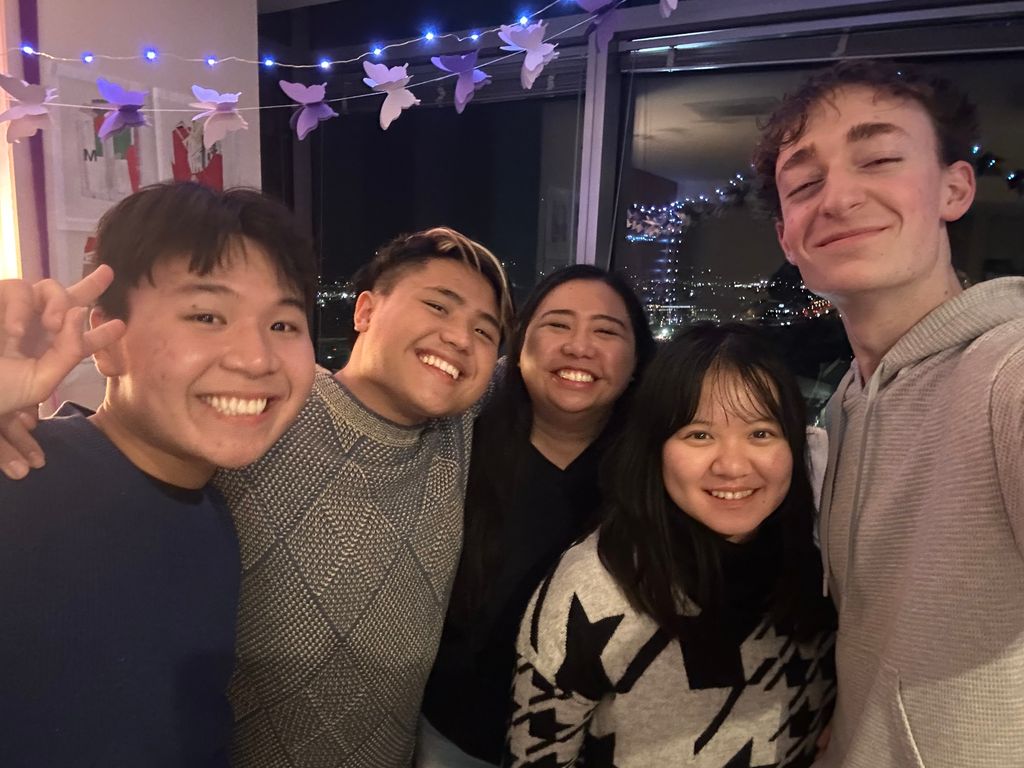#BUandBoston: Interview with Man Nguyen on Translating and Adapting the USDA’s Household Food Security Survey Module for Vietnamese Residents in Boston
This post is part of our #BUandBoston series, highlighting the work and research of BU students, faculty, and staff throughout the City of Boston and the Greater Boston region. Interested in having your Boston-related work featured? Tag us on Instagram or Twitter (@BUonCities) using the #BUandBoston or send us an email at ioc@bu.edu.

Man Nguyen, a senior undergraduate student majoring in health science (SAR/ KHC ‘24, SPH ‘25), has always understood the value of food. Through his public health studies, he came to understand that the lack of food – a condition called food insecurity – he experienced growing up in his Vietnamese immigrant family was not unique to him but a result of systemic cultural barriers. This realization led him to focus his Kilachand Senior Keystone project on addressing one of these obstacles—translating the USDA’s Household Food Security Survey Module for Vietnamese speakers in the US.
Data on Asian-American health disparities remain scarce, and historically, much-surveyed knowledge tends to aggregate Asian-American subgroups together (e.g., Japanese, Chinese, Asian Indian, Korean, Vietnamese, etc.) Treating the term Asian-American as a monolith may mask differences between subgroups—hindering potential solutions to specific subgroup disparities.
The U.S. government and researchers use national health surveys to collect information on population health disparities. One such survey, the USDA Food Security Survey Module, is a set of 18 questions used to assess food security in American households with children under 18 years old. Data are instrumental in informing policy decisions and tracking progress to achieving national health improvement. In order to monitor food insecurity across the country, the USDA categorizes households surveyed through four levels–high food security, marginal food security, low food security, or very low food security–based on module responses. This module is typically included in surveys such as the US Census’s Current Population Survey, making it one of the largest, most comprehensive assessments of national food insecurity.
Currently, only the English and Spanish versions of the Food Security Module are validated for national survey use, and a Chinese version has been validated for surveying in California.
“You can’t address an invisible problem,” stated Nguyen, given that the Vietnamese-American population is disproportionately affected by the lack of a translated survey. Of all Asian-American subgroups, Vietnamese Americans have the highest percentage of people who do not primarily speak English. Furthermore, results from the California Health Interview Survey, the largest state health survey, found that Vietnamese / Vietnamese Americans had the highest prevalence of food insecurity among Asian subgroups in 2018.
The Vietnamese American Initiative for Development (VietAID), a non-profit Nguyen has volunteered for, focuses on providing services to alleviate poverty in the Vietnamese community of Dorchester, Boston. VietAID has stated that “hunger and food insecurity are perennial but often invisible problems among low-income Asian Americans.”
Data on the food insecurity experienced by these Vietnamese Americans is needed to create solutions and initiatives to benefit those suffering without regular meals on their table. Working under his BU faculty advisor, Dr. Ana Poblacion, Nguyen began the summer of 2023 planning a three-prong approach to creating a survey that members of his Vietnamese community could understand. His 12-person team includes a translation team fluent in Vietnamese, a program policy team to compile food security resources, and a toolkit team responsible for documenting the research process through templates usable for students to replicate Nguyen’s module translation in any other language.
The process of translating can be exceptionally challenging, especially because many English words and phrases do not have a clear Vietnamese equivalent. For example, there are three different ways to say “food” in Vietnamese and multiple translations for “children.” Nguyen’s team has meticulously synthesized key ideas, translated, and back-translated these questions to create a translated version of the Food Security Survey Module.
When asked what challenges he has had to overcome in this project, Nguyen stated that he has experienced how “leadership is knowing where to go, but management is knowing how to get from A to Z.” Balancing his research and facilitating coordination across separate teams and outside agencies has not been easy, but it has been extremely rewarding.
Besides spearheading an important project for the well-being of future populations, one of the most valuable successes throughout his process has been seeing his team members become increasingly passionate about battling food insecurity. One team member has considered pursuing a Master’s in Public Health, and another has secured employment at a food security research department after their involvement.

Currently, Nguyen’s team is in the process of reiterating the survey through bilingual reviews by several language professionals using the Delphi technique, a questionnaire method where experts are asked their opinions on the accuracy of many translations. Feedback is then used to improve the translation, and another round of review is conducted until a consensus is reached. After completing rounds of expert reviews, Nguyen plans to launch in-person interviews with Vietnamese speakers in Dorchester to ensure translation accuracy and verify the module’s statistical validity. The module will then be submitted to a peer-reviewed scientific journal and then able to be used by a state or national government to measure the food security of the Vietnamese population.
While a tedious process, one that may take almost a decade to reach the state or national level, Nguyen maintains excitement for the benefits he anticipates his project will bring to the community he cares about. He believes that an invisible problem will only remain invisible if people remain without a voice: “If they can express their state of food insecurity and we can see the problem of food insecurity… then we can start working towards solutions.”